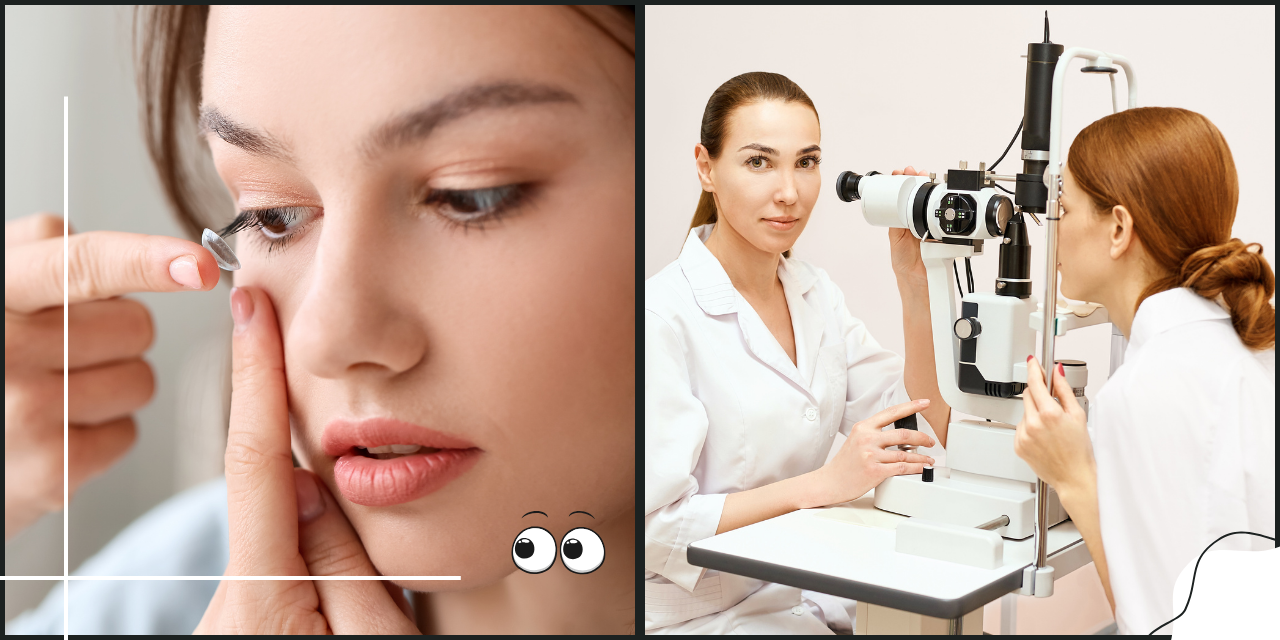Contact lenses are a popular choice for vision correction, offering convenience and comfort over traditional eyeglasses. However, many people may not be fully aware of how contact lenses can affect corneal health over time. In this article, we will explore the potential impact of contact lenses on your eye health and discuss the alternatives available to maintain optimal corneal health.
Impact of Contact Lenses on Corneal Health
While contact lenses are designed to enhance vision, they can cause various issues for the cornea if not used properly. The cornea, which is the transparent layer covering the front of the eye, plays a vital role in focusing light onto the retina. Prolonged or improper use of contact lenses can lead to the following concerns:
➺ Reduced Oxygen Supply
Contact lenses cover the cornea, reducing its exposure to oxygen. This can cause oxygen deprivation in the corneal cells, leading to a condition known as hypoxia. Hypoxia may result in eye redness, irritation, and discomfort, increasing the risk of corneal infections.
➺ Increased Risk of Infection
Contact lenses, especially when worn overnight or for extended periods, can trap bacteria on the surface of the eye. This can lead to serious infections such as keratitis, which causes inflammation and can even lead to scarring or vision loss if left untreated.
➺ Dry Eyes
Contact lenses can contribute to dry eye symptoms by disrupting the normal tear film on the surface of the eye. This condition can make wearing contact lenses uncomfortable, causing symptoms such as itching, burning, and blurry vision.
➺ Corneal Abrasions
Poorly fitted or dirty contact lenses can scrape the cornea, leading to abrasions. This can cause significant pain and may increase the likelihood of infection.
Alternatives to Contact Lenses
While contact lenses may be an effective solution for some, there are several alternatives that can help preserve corneal health and improve vision.
➺ Eyeglasses
The most common alternative to contact lenses in eyeglasses. Eyeglasses provide a safe and non-invasive way to correct vision. They do not come into contact with the cornea, so they do not cause the issues that contact lenses can. For those with dry eyes or sensitive corneas, glasses may be the ideal option.
➺ Laser Eye Surgery (LASIK)
LASIK (Laser-Assisted in Situ Keratomileusis) is a popular surgical procedure that reshapes the cornea to improve vision. This treatment is permanent and eliminates the need for both eyeglasses and contact lenses. It is a good option for those seeking a long-term solution to vision problems without compromising corneal health.
➺ Orthokeratology (Ortho-K)
Ortho-K involves wearing specially designed contact lenses overnight that temporarily reshape the cornea. This non-surgical procedure can correct nearsightedness and offer a day of clear vision without the need for glasses or contact lenses.
➺ Implantable Lenses
For individuals who cannot undergo LASIK or prefer not to wear glasses, implantable lenses are an alternative. These lenses are surgically inserted inside the eye to correct vision, providing a long-term solution without affecting corneal health.
Conclusion
Maintaining corneal health is crucial for overall eye health. Exploring eye treatment in Ambala, such as eyeglasses, LASIK, or Ortho-K, can help preserve your corneal health while providing clear vision. While contact lenses provide convenience, improper use can lead to complications. For personalized advice and expert eye care, consult Dr. P.C. Sharma at P.C. Sharma Eye Hospital. You can contact the hospital at +91 9896081381 to schedule an appointment and discuss the best eye treatment options available in Ambala.

